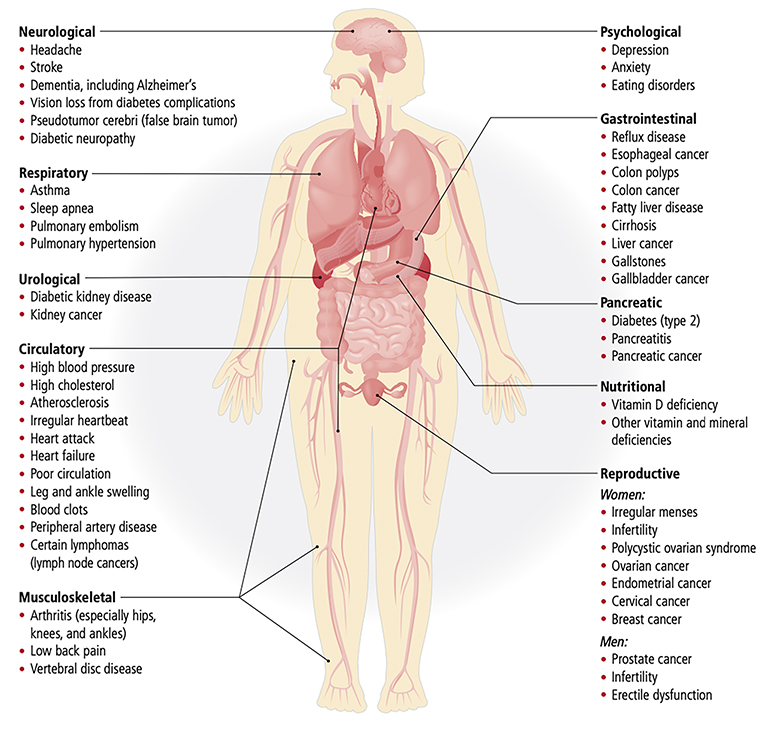How to Lose Weight and Keep It Off
Dieting tips that work and won’t make you miserable

This therapist directory is offered in partnership with BetterHelp. If you sign up for therapy after clicking through from this site, HelpGuide will earn a commission. This helps us continue our nonprofit mission and continue to be there as a free mental health resource for everyone.
Need to talk to someone now? Find a crisis helpline
If you're a BetterHelp therapist with questions about your directory listing, please contact therapists@betterhelp.com
Being overweight can increase your risk of major health problems—and shorten your lifespan. But even modest weight loss can significantly improve your health.

Adapted with permission from Lose Weight and Keep it Off, a special health report from Harvard Health Publishing.
Excess pounds do more than increase your weight—they increase your risk of major health problems. People who are overweight or obese are more likely to have heart disease, strokes, diabetes, cancer, and depression. Fortunately, losing weight can reduce your risk of developing some of these problems.
If you’re carrying many extra pounds, you face a higher-than-average risk of a whopping 50 different health problems. These health conditions include the nation’s leading causes of death—heart disease, stroke, diabetes, and certain cancers—as well as less common ailments such as gout and gallstones. Perhaps even more compelling is the strong link between excess weight and depression, because this common mood disorder can have a profound, negative impact on your daily life.
A Harvard study that combined data from more than 50,000 men (participants in the Health Professionals Follow-up Study) and more than 120,000 women (from the Nurses’ Health Study) revealed some sobering statistics about weight and health.
The volunteers provided their height and weight, as well as details on their diets, health habits, and medical histories. Researchers tracked the volunteers over more than 10 years. They noted the occurrence of illnesses and compared those developments with each subject’s body mass index (BMI)—an estimate of an individual’s relative body fat calculated from his or her height and weight).
Obesity increased the risk of diabetes 20 times and substantially boosted the risk of developing high blood pressure, heart disease, stroke, and gallstones. Among people who were overweight or obese, there was a direct relationship between BMI and risk: the higher the BMI, the higher the likelihood of disease.
BetterHelp is an online therapy service that matches you to licensed, accredited therapists who can help with depression, anxiety, relationships, and more. Take the assessment and get matched with a therapist in as little as 48 hours.
Take Assessment HelpGuide is user supported. We earn a commission if you sign up for BetterHelp’s services after clicking through from this site. Learn more
Do people gain weight because they’re depressed, or do they become depressed because they’re overweight? A review of 15 studies found evidence that both scenarios are likely true. The study, published in 2010 in the Archives of General Psychiatry, found that obese people have a 55% higher risk of developing depression over time compared with people of normal weight. Here are some reasons why obesity may increase risk of depression:
The study also found that depressed people have a 58% higher risk of becoming obese. Here are some reasons why depression may lead to obesity:
If you snore loudly and temporarily stop breathing many times during the night, waking suddenly with a snort or choke, you probably have sleep apnea, a common disorder that’s more prevalent with overweight and obesity.
Your bedmate will probably notice these symptoms, while you may not. People with sleep apnea don’t realize they’ve been awakened because they don’t become fully conscious, but these awakenings can disrupt sleep. Not only does sleep apnea often lead to daytime sleepiness, it also increases the risk of high blood pressure, heart attack, and stroke.
Some of the most common problems seen in people who carry excess weight, such as high blood pressure and unhealthy levels of cholesterol and other fats in the blood, tend to occur together. Both can lead to concurrent health problems—namely, heart disease and stroke.
High blood pressure is about six times more common in people who are obese than in those who are lean. According to the American Heart Association, 22 pounds of excess weight boosts systolic blood pressure (the first number in a reading) by an average of 3 millimeters of mercury (mm Hg) and diastolic blood pressure (the second number) by an average of 2.3 mm Hg, which translates to a 24% increase in stroke risk.
A 2007 study in Archives of Internal Medicine examined the connection between weight and heart disease by pooling results from 21 different studies involving more than 300,000 people. The study found:
Although the adverse effects of overweight on blood pressure and cholesterol levels could account for 45% of the increased heart disease risk, even modest amounts of excess weight can increase the odds of heart disease independent of those well-known risks, the authors concluded.
Compared with people of normal weight, overweight people face a 22% higher risk of stroke. For those who are obese, the increased risk rises to 64%, according to a 2010 report in the journal Stroke, which pooled results from 25 studies involving more than two million people.
Overweight and obesity are so closely linked to diabetes, experts have coined the term “diabesity” to describe the phenomenon. About 90% of people with type 2 diabetes (the most common form of the disease) are overweight or obese. The incidence of diabetes rose dramatically—by nearly 65%—from 1996 to 2006.
A high blood sugar level, the hallmark of diabetes, is one of the features of metabolic syndrome. If untreated or poorly controlled, diabetes can lead to a number of grave health problems, including kidney failure, blindness, and foot or leg amputations. Diabetes is currently the seventh leading cause of death in the United States.
Metabolic syndrome, a cluster of conditions that occur together, also increases the risk of heart disease, stroke, and diabetes. One of the key features is abdominal obesity. If you have that problem, you’re more likely to have the other characteristics.
You have metabolic syndrome if you have three or more of these five traits:
(Note: You are considered to have one of the above traits if you receive treatment for it, even if your
numbers are normal with this treatment.)
Source: National Heart, Lung, and Blood Institute.
Some experts believe that obesity ranks as the second leading cause of cancer death, after cigarette smoking.
A study by the American Cancer Society, published in The New England Journal of Medicine, followed more than 900,000 people for 16 years. The study showed a link between excess body weight and many different cancers. Some of the findings:
A 2008 review article in The Lancet reached similar conclusions. Part of the problem may lie in the fact that people who are very overweight are less likely to have cancer screening tests such as Pap smears and mammograms.
A report in The International Journal of Obesity showed that the larger the woman, the more likely she was to delay getting a pelvic exam, largely because of negative experiences with doctors and their office staff. In men, screening tests such as prostate exams may be physically difficult if people are very overweight, particularly if they tend to store fat in their hips, buttocks, or thighs.
Being overweight or obese can make just getting around a challenge. Compared with people at a healthy weight, those carrying extra pounds have a harder time walking a quarter-mile, lifting 10 pounds, and rising from an armless chair. The burden of these problems appears to be greater than in years past, probably because people are now obese for a greater portion of their lives, experts speculate.
And because excess weight plays a role in so many common and deadly diseases, overweight and obesity can cut years off your life. A New England Journal of Medicine study that followed more than half a million 50- to 71-year-olds for a decade found an increase of 20% to 40% in death rates among people who were overweight at midlife. Among obese people, the death rate was two to three times as high.
A 2010 study in the same journal, which pooled findings from 19 studies that followed nearly 1.5 million white adults 19 to 84 years old for a similar period of time, found that the risk of death increased along with body size, ranging from 44% higher for those who were mildly obese to 250% higher for those with a BMI of 40 to 50.
Losing excess weight can make you feel better both physically and emotionally and can help you live a longer, healthier life. Especially encouraging is the fact that you don’t have to lose a tremendous amount of weight to become healthier. Even a modest weight loss of 5% to 10% of your starting weight can lead to significant health benefits. Some examples:
Adapted with permission from Lose Weight and Keep it Off, a special health report from Harvard Health Publishing.
Millions of readers rely on HelpGuide.org for free, evidence-based resources to understand and navigate mental health challenges. Please donate today to help us save, support, and change lives.
Donate to HelpGuide.org today